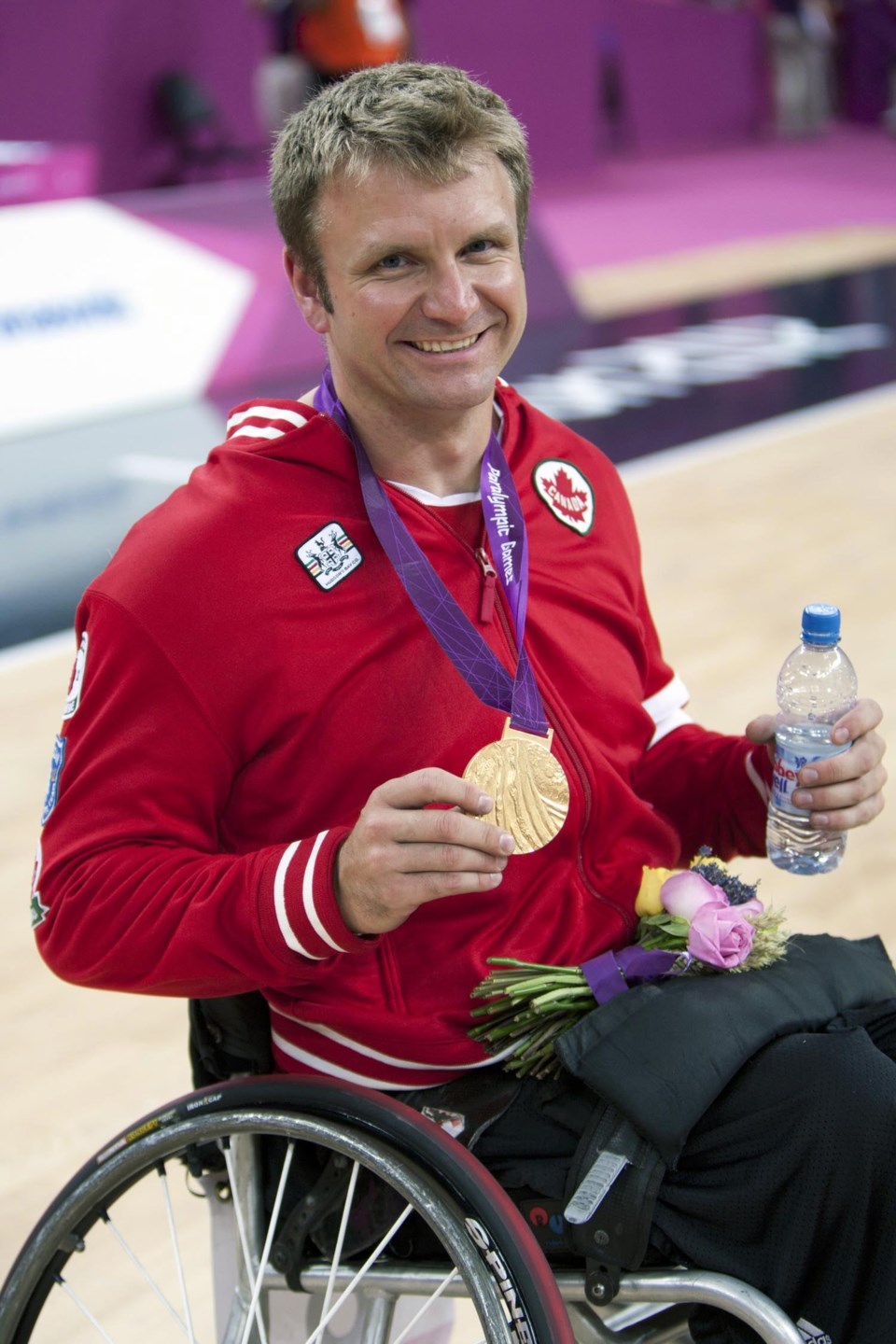When the final buzzer sounded, Bo Hedges had officially reached the pinnacle of his sport.
All the years of training, practicing and playing -- and all the life decisions he made along the way so he could pursue his dream -- paid him back in the form of a glittering gold medal from the Paralympic Games.
Hedges, a 32-year-old with strong ties to Prince George, was a co-captain of the Canadian men's wheelchair basketball team that won gold last Saturday in London. In the championship game, Canada downed rival Australia 64-58 and avenged a 72-60 loss to that same team in the 2008 Paralympic final.
For Hedges, who was a first-time Paralympian in 2008, turning silver to gold was a surreal experience.
"It's pretty hard to describe, but pretty amazing starts to cover it," Hedges said in a Wednesday e-mail to The Citizen. "Over the past couple days a sense of fulfilling that goal has been setting in. I feel very at peace right now."
In Saturday's game, Canada didn't take its first lead until the second quarter. Hedges, however, said victory never felt out of grasp.
"At half time we evaluated and identified some minor adjustments to our game, came out in the second half and executed them," he said. "We played with confidence and played our game."
The strategic tweaks worked, because Canada outscored Australia 20-15 in the third quarter and defended strongly in the fourth to seal the victory.
Hedges said past lessons proved valuable in Canada's gold-medal run, which saw the club post an 8-0 record in the Paralympic tournament.
"I think we learned a lot from the 2008 loss," he said. "After our thrilling double-overtime [69-62] semifinal win over the USA [that year], we may have been looking past a very good Australian team that we had beat three of four times that summer. Also, our 2010 seventh-place finish at the world championship reminded us how good the rest of the world is and that to win we [couldn't] look past any team."
At the Paralympics, Hedges was second in Team Canada scoring. He hit for 85 points in the eight games, including a 9-for-11 performance from the free-throw line. With other teams keying on Canada's Patrick Anderson (200 points, 88 rebounds, 64 assists), Hedges said he had extra time and space to make his own contributions.
"It was just the way things worked out," Hedges said. "With Pat Anderson playing so well, it opened up opportunities for me and I was able to hit my shots."
Hedges grew up on a ranch in Wonowon, northwest of Fort St. John. When he was 13, he fell from a tree and suffered a spinal cord injury that left him a paraplegic. He started playing community-level wheelchair basketball a few years later and began developing his skills in earnest with the Prince George Titans, a rep team formed by Mark Cormack and Pat Harris.
Hedges ended up relocating to Prince George and attending school at UNBC. From the Titans, he moved on to Team B.C. and then to the junior national team, with which he won world championship titles in 1997 and 2001.
Hedges was an alternate for the senior national team for four years and moved to Burnaby in 2006 so he could train with the best players in the country and make the final push for a senior national team spot.
Looking back, he gives thanks to Harris, Cormack and others who helped him get to where he is today.
"Pat Harris had a big impact on my basketball career, as well as my life in general," Hedges said. "He was a big reason as to why I moved to P.G., along with Mark Cormack, John Annis and Erik Bittner. They had a strong [Titans] team, were a great bunch of guys to play with and learn from."
Harris, who works for the B.C. Paraplegic Association in Prince George, said he's proud of Hedges and his latest accomplishment.
"What's really neat about this is to see the progression of an athlete, from just starting out to making it to the Paralympics -- to the elite level," Harris said. "And it kind of feels good to be part of that, the fact that I helped him start out on his journey and coached him a little bit along the way. So it's really, really exciting to see."
Harris said Hedges has shown "tremendous growth" on the basketball court.
"He has really matured as a player and is an integral part of that team and the team cohesiveness," Harris said.
"What this shows is the benefit of sport in peoples' lives, and particularly kids," he added. "There are so many aspects to sport. There is the physical fitness aspect and eating right and nutrition, and then there's the discipline that sport teaches kids. And all of those skills that you learn make you a stronger and better person as you grow and age."
Hedges is still in Europe, enjoying some well-deserved holiday time. He plans to spend Thanksgiving on his parents' ranch and will then head for the University of Alabama, where he's working on a masters degree in sport management and playing wheelchair basketball in the school's Adapted Athletics Program. He already has his future basketball goals clearly mapped out.
"College nationals are early in March and I want to spend as much time with my team as possible and plan on winning that tournament next," he said.
"I will be finished with my degree next summer and then will probably look at heading to Europe to play in Germany, Spain or Italy for a year or two leading into the 2016 Games in Rio de Janeiro."



